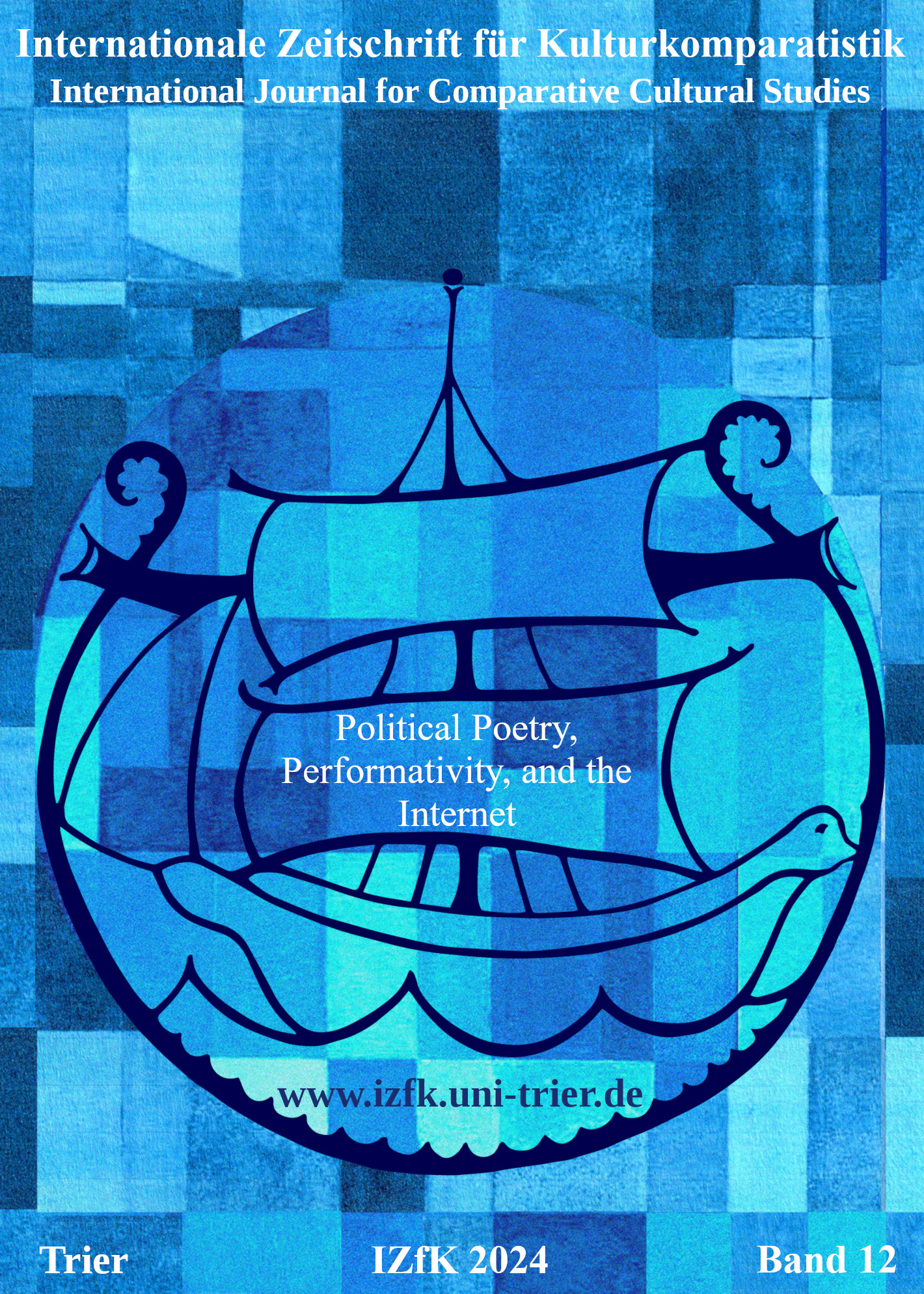Breaking up the Canon of Literary Modernity: Classicism in the Ecopoetics of David Hinton and the Materialism of Zeng Shaoli. A Preliminary Outline of Epistemological Changes in Contemporary American and Chinese Lyricism
Hauptsächlicher Artikelinhalt
Abstract
The target of this essay is to open possible pathways to approach the phenomenon of a self-remodeling of classicist poetry in the 20th and early 21st century by focusing on the process from two different angles rarely perceived as related to each other: first, the remodeling of Chinese lyrical classicism through a strand of modern American poetry harking back to Ezra Pound and currently crystallized in the translations of David Hinton and, second, the transition that modern Chinese poetry written in classical language and conforming to prosodic rules of classical style poetry, sometimes referred to as “old style poetry” jiu ti shi, underwent after its rebirth as “unofficial” poetry online since the beginning of this century. Although there are obviously no direct links between the aforementioned tradition of modern American poetry and neoclassicist cyberpoets like Zeng Shaoli I argue that in both cases the classicist inspiration and poetic drive is motivated by concern with the increasing imbalance between natural, social, and individual resources, on the one hand, and an indomitable desire to accumulate economic and political power on the other. A permanent devaluation of language in the human realm, matched by a permanent devaluation of currencies in the economic sphere, provokes poetic responses in the very interest of humanity. The neoclassicist lyricisms that I draw into comparison display both subtle distinctions and common traits in this response to the starkly different environments of their respective contemporary literary scenes.


